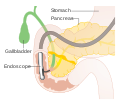Prostaglandin inhibitors
Prostaglandin Inhibitors
Prostaglandin inhibitors are a class of drugs that reduce the production of prostaglandins, lipid compounds that have various roles in the body, including mediating inflammation, pain, and fever. These inhibitors are widely used in the treatment of pain, fever, and inflammation caused by various conditions, including arthritis, menstrual cramps, and injury. This article provides an overview of prostaglandin inhibitors, including their mechanism of action, types, clinical uses, and potential side effects.
Mechanism of Action
Prostaglandin inhibitors work by blocking the action of the enzyme cyclooxygenase (COX), which is crucial in the biosynthesis of prostaglandins. There are two main isoforms of the cyclooxygenase enzyme: COX-1 and COX-2. COX-1 is involved in the production of prostaglandins that protect the stomach lining and support platelet function, while COX-2 is primarily involved in inflammation and pain. Prostaglandin inhibitors can be classified based on their selectivity for COX-1 and COX-2 enzymes.
Types
There are two main types of prostaglandin inhibitors:
- Non-selective COX inhibitors: These drugs inhibit both COX-1 and COX-2 enzymes. Examples include aspirin, ibuprofen, and naproxen. They are commonly used for their analgesic, antipyretic, and anti-inflammatory effects.
- COX-2 selective inhibitors: Also known as coxibs, these drugs selectively inhibit the COX-2 enzyme, reducing the risk of gastrointestinal side effects associated with non-selective COX inhibitors. Examples include celecoxib and etoricoxib.
Clinical Uses
Prostaglandin inhibitors are used to treat a variety of conditions, including:
- Pain relief, particularly for musculoskeletal pain, headache, and dental pain
- Reduction of fever
- Management of inflammatory conditions such as osteoarthritis and rheumatoid arthritis
- Menstrual pain relief
Potential Side Effects
While prostaglandin inhibitors are generally safe, they can cause side effects, especially with long-term use. Potential side effects include:
- Gastrointestinal issues, such as stomach ulcers and gastrointestinal bleeding, particularly with non-selective COX inhibitors
- Increased risk of cardiovascular events, such as heart attack and stroke, particularly with COX-2 selective inhibitors
- Kidney function impairment
- Allergic reactions
Conclusion
Prostaglandin inhibitors are an important class of medications used to manage pain, fever, and inflammation. While they offer significant benefits, it is important to use them under the guidance of a healthcare professional to minimize the risk of side effects.
Transform your life with W8MD's budget GLP-1 injections from $125.
W8MD offers a medical weight loss program to lose weight in Philadelphia. Our physician-supervised medical weight loss provides:
- Most insurances accepted or discounted self-pay rates. We will obtain insurance prior authorizations if needed.
- Generic GLP1 weight loss injections from $125 for the starting dose.
- Also offer prescription weight loss medications including Phentermine, Qsymia, Diethylpropion, Contrave etc.
NYC weight loss doctor appointments
Start your NYC weight loss journey today at our NYC medical weight loss and Philadelphia medical weight loss clinics.
- Call 718-946-5500 to lose weight in NYC or for medical weight loss in Philadelphia 215-676-2334.
- Tags:NYC medical weight loss, Philadelphia lose weight Zepbound NYC, Budget GLP1 weight loss injections, Wegovy Philadelphia, Wegovy NYC, Philadelphia medical weight loss, Brookly weight loss and Wegovy NYC
|
WikiMD's Wellness Encyclopedia |
| Let Food Be Thy Medicine Medicine Thy Food - Hippocrates |
Medical Disclaimer: WikiMD is not a substitute for professional medical advice. The information on WikiMD is provided as an information resource only, may be incorrect, outdated or misleading, and is not to be used or relied on for any diagnostic or treatment purposes. Please consult your health care provider before making any healthcare decisions or for guidance about a specific medical condition. WikiMD expressly disclaims responsibility, and shall have no liability, for any damages, loss, injury, or liability whatsoever suffered as a result of your reliance on the information contained in this site. By visiting this site you agree to the foregoing terms and conditions, which may from time to time be changed or supplemented by WikiMD. If you do not agree to the foregoing terms and conditions, you should not enter or use this site. See full disclaimer.
Credits:Most images are courtesy of Wikimedia commons, and templates, categories Wikipedia, licensed under CC BY SA or similar.
Translate this page: - East Asian
中文,
日本,
한국어,
South Asian
हिन्दी,
தமிழ்,
తెలుగు,
Urdu,
ಕನ್ನಡ,
Southeast Asian
Indonesian,
Vietnamese,
Thai,
မြန်မာဘာသာ,
বাংলা
European
español,
Deutsch,
français,
Greek,
português do Brasil,
polski,
română,
русский,
Nederlands,
norsk,
svenska,
suomi,
Italian
Middle Eastern & African
عربى,
Turkish,
Persian,
Hebrew,
Afrikaans,
isiZulu,
Kiswahili,
Other
Bulgarian,
Hungarian,
Czech,
Swedish,
മലയാളം,
मराठी,
ਪੰਜਾਬੀ,
ગુજરાતી,
Portuguese,
Ukrainian
Contributors: Prab R. Tumpati, MD








